"How to draw cartoon animations" - Part 2
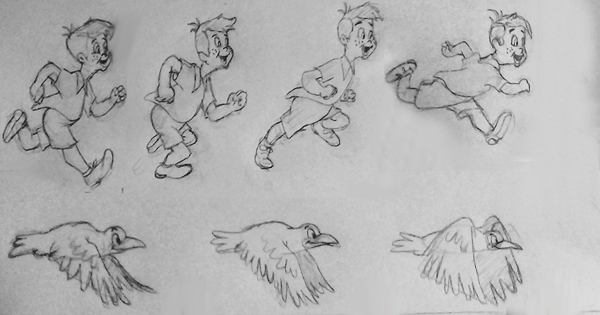
In this second part, we will analyze the difference in the animations between walking and running, describing step by step each frame. In addition, we will begin to see how an animation is framed in a scene, this is a fundamental aspect because it loads the action of dynamism and allows us to obtain a feeling of depth much more credible to the human eye.
I am still fascinated to see, after several hours of drawing, the final result. I hope that if you are accompanying me in this learning process you will find it just as satisfying.
Let's start ...
The difference between walking and running
The first drawing in each sequence is the one used to build the rest of the action.
On the walk, the forward foot is stretched and the body is straight, which marks the low speed. When running, the body leans forward and the foot that leads the action is further behind.
The arms move in opposition to the legs. The left arm is shaken with the right leg and vice versa. The arms move more violently when running.
If we compare the actions of walking and running, the arms are more stretched to step when walking while in the race the stretch occurs when the figure is in the air, at the highest point of the action.
The walk
1.The left foot touches the ground
2.It sinks in a recoil position.
3.The right foot is raised, start to take the step.
4.The high point of the step, the right foot is raised.
5.The right leg is stretched in position to touch the ground
6.Recoil position. The leg is bent.
7.The rabbit is raised again while the left leg is raised.
8.High position, then go back to step 1.
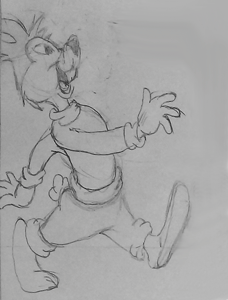
The run
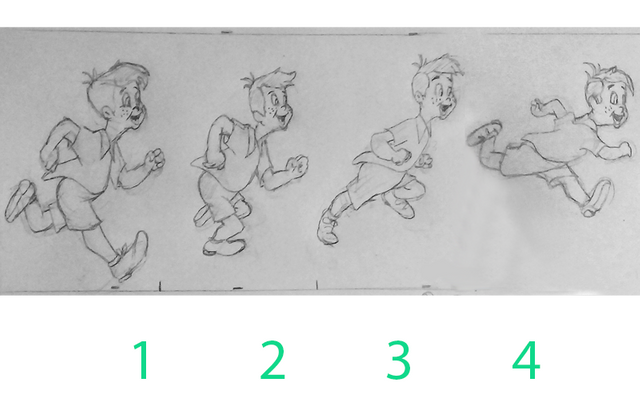
1.Right foot in position of contact with the ground.
2.The right foot takes the weight of the body.
3.The right foot pushes against the floor to raise the body.
4.The body is at the highest point of the race.
5.The left foot touches the ground.
6.In recoil with the right foot coming forward.
7.The left foot is stretched for recoil.
8.The arms and legs are stretched, go back to step 1.
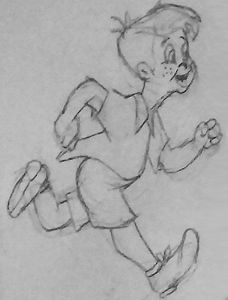
Flight of the birds
Here the author teaches us two flight cycles of birds. The first, flying sideways and then a flight in front. Step 8 is followed by 1. In figure 1 of the side flight the position of the wings is the same as in step 1 of the front flight, he asks us to notice how the wings bend upwards while rising in the wings in drawings 2, 3 and 4. This part of the action is slower and therefore more drawings are necessary. In drawings 5, 6 and 7, the wings enlarge to catch more air. Then, in drawing 8, they quickly fall open (just one drawing) to give the bird the thrust that carries it through the air.
Not all the actions of bird wings are as violent as this one, but the one illustrated here can be modified for smaller birds.
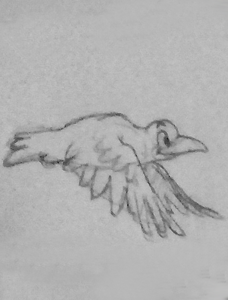
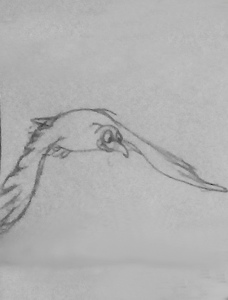
Anticipation - Action - Reaction
An action like the swing of a pendulum is a movement between two extreme positions, a drawing of a pendulum in a centered position has little visual value to represent the action. It is the extreme positions of the pendulum that describe the action-and measure it. The first extreme is anticipation: get comfortable, take a breath, retreat, contract or get up, or push up (for a downward movement). The second extreme is the reaction: the recovery of movement, be it a shock or a stretch and accommodation that generates vibration.
The minimum movement in any direction can be reinforced with a movement in the opposite direction, in an anticipation before the act, and then the process of recovery is advanced. The author points out a curiosity, the contact drawing of the action is of such low importance to describe the action that it is usually best to eliminate it from the sequence, as we can see in the action of the rabbit.
In the action of the rabbit we do not see the contact with the bulldog, it is not a trick; it is an exaggeration of the rhythm of the sequence.
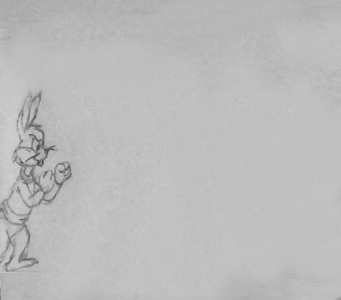
I hope you liked it, in the next installment we will analyze the difference between the straight-ahead animation, where each drawing represents each instance of the action and the animation of where "the pose is planned", a style where both ends are drawn and the action is filled with drawings between them.

"How to draw cartoon animations" Part 1
"How to draw animals" Part 1 Part 2 Part 3
"How to draw manga" Part 1 Part 2 Part 3
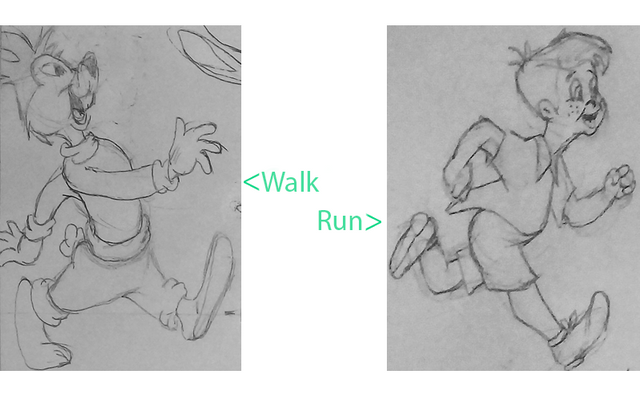
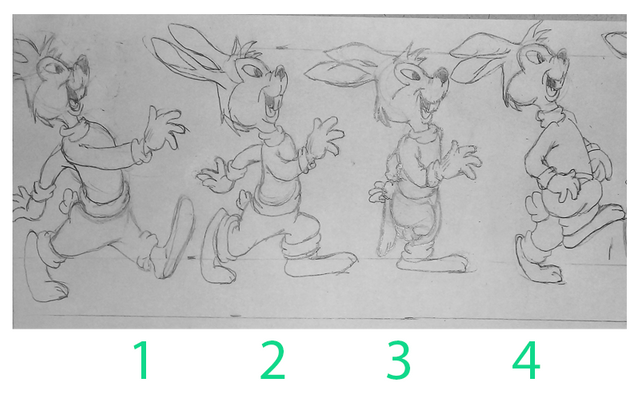
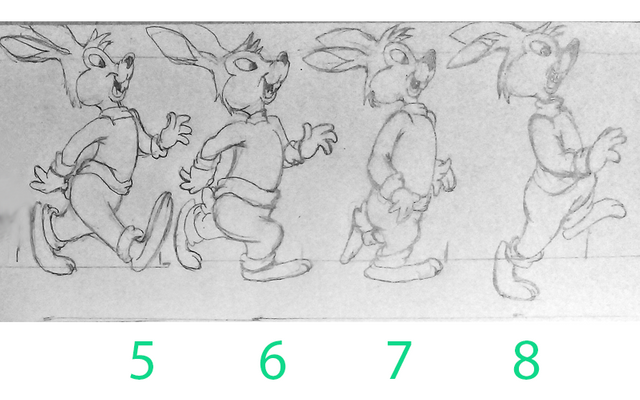
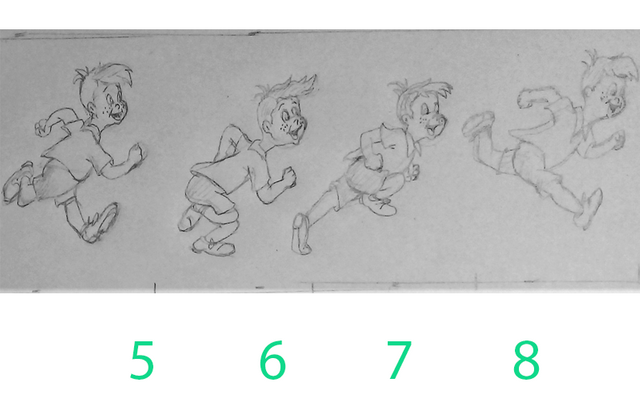
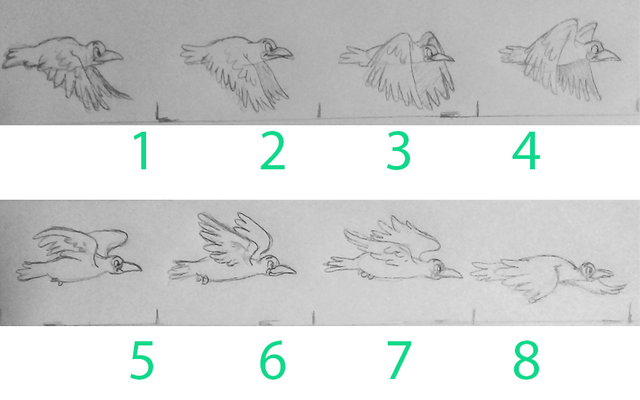
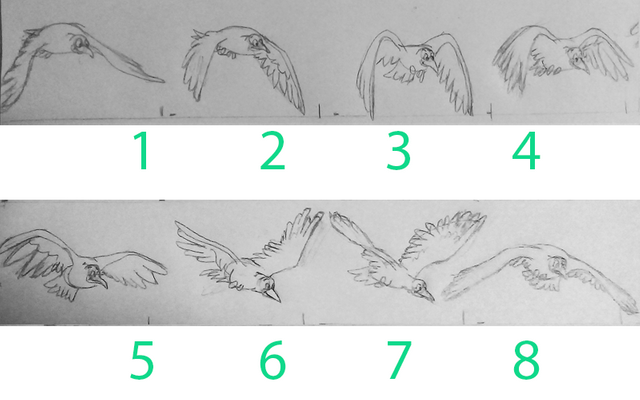
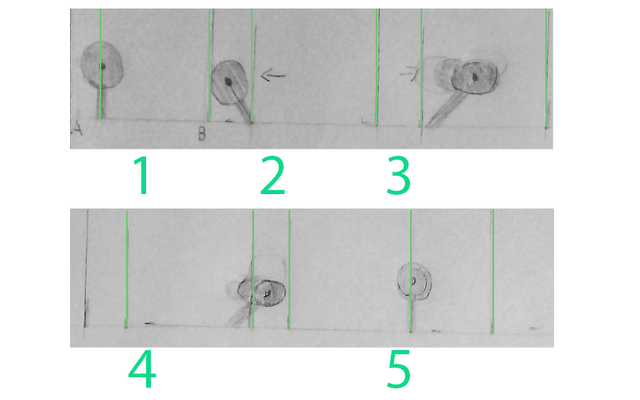
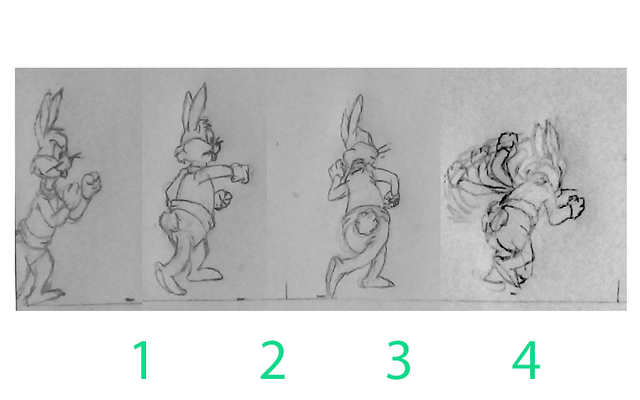
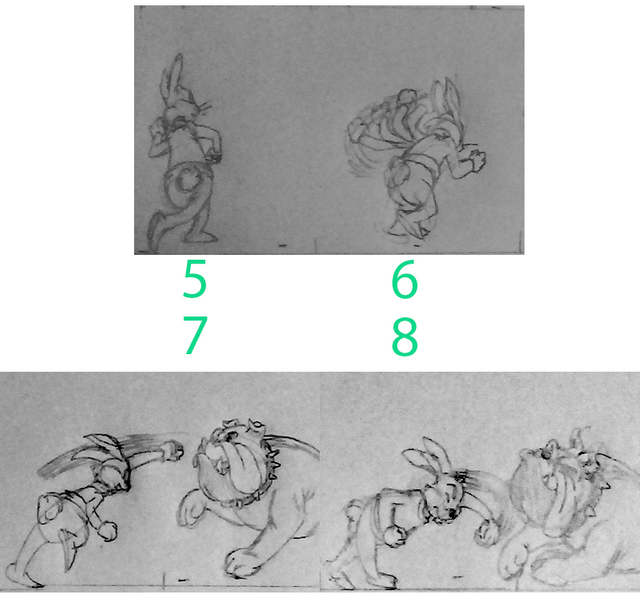
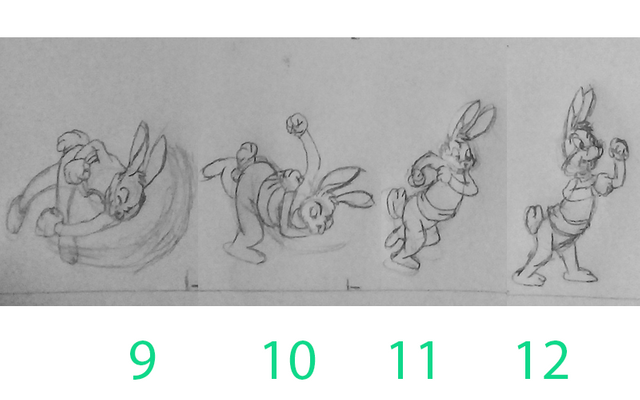
This post was shared in the Curation Collective Discord community for curators, and upvoted and resteemed by the @c-squared community account after manual review.
@c-squared runs a community witness. Please consider using one of your witness votes on us here
Thank you for the support guys!
I love this, @siucatti :D I really should start to do some animating since I mentioned it last time in your post as well that I've always been curious about it <3 And wow, I love all the different motions~ Walking, running, flying, punching :D So well done ! Each state of each animated sequence is shown nicely and clearly, and I love the text accompanying all the illustrations, as well <3
Your art tutorial series is theeeeeeeee besssssssttttttttt \o/
Thank you spidey, you're too nice!😃 I'm glad you're enjoying this series.
Wow! it is so interesting to see how to display the movement in a picture step by step.
probably need to do so many drawings to show one small movement in the animation.
Thank you, @siucatti, for such a detailed and interesting story about this process
Thank you, Madlen! Yes, every animation requires several drawings just for a couple of seconds. I'm glad you liked it!
Hello!
This post has been manually curated, resteemed
and gifted with some virtually delicious cake
from the @helpiecake curation team!
Much love to you from all of us at @helpie!
Keep up the great work!
Manually curated by @sunravelme.
Thank you, guys! I really appreciate it.
Congratulations @siucatti! You have completed the following achievement on the Steem blockchain and have been rewarded with new badge(s) :
You can view your badges on your Steem Board and compare to others on the Steem Ranking
If you no longer want to receive notifications, reply to this comment with the word
STOPVote for @Steemitboard as a witness to get one more award and increased upvotes!
Hi @siucatti!
Your post was upvoted by @steem-ua, new Steem dApp, using UserAuthority for algorithmic post curation!
Your UA account score is currently 2.490 which ranks you at #18056 across all Steem accounts.
Your rank has dropped 89 places in the last three days (old rank 17967).
In our last Algorithmic Curation Round, consisting of 266 contributions, your post is ranked at #116.
Evaluation of your UA score:
Feel free to join our @steem-ua Discord server
You got a 4.38% upvote from @ocdb courtesy of @siucatti! :)
@ocdb is a non-profit bidbot for whitelisted Steemians, current max bid is 40 SBD and the equivalent amount in STEEM.
Check our website https://thegoodwhales.io/ for the whitelist, queue and delegation info. Join our Discord channel for more information.
If you like what @ocd does, consider voting for ocd-witness through SteemConnect or on the Steemit Witnesses page. :)